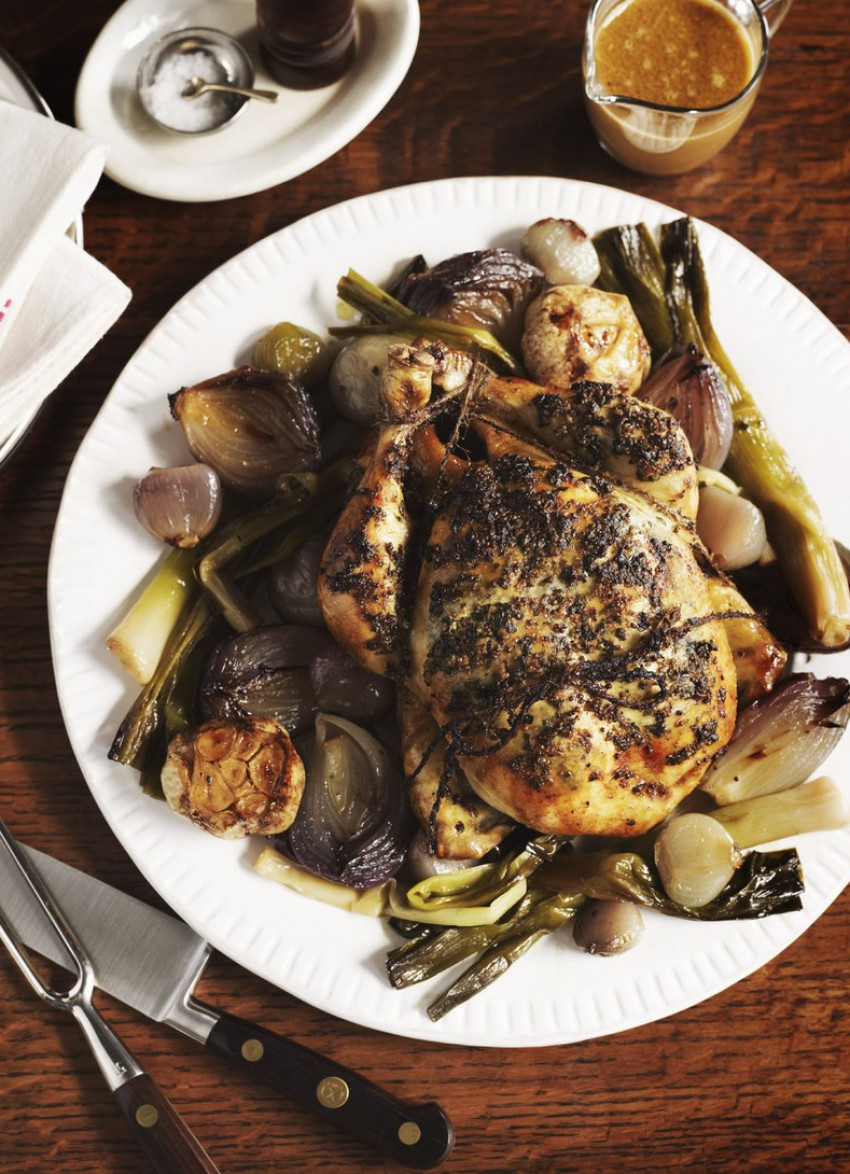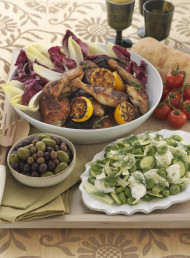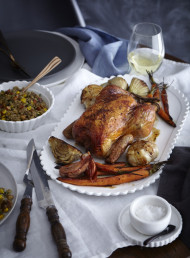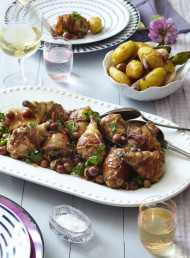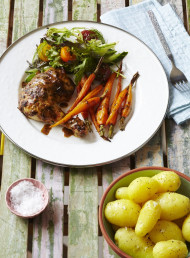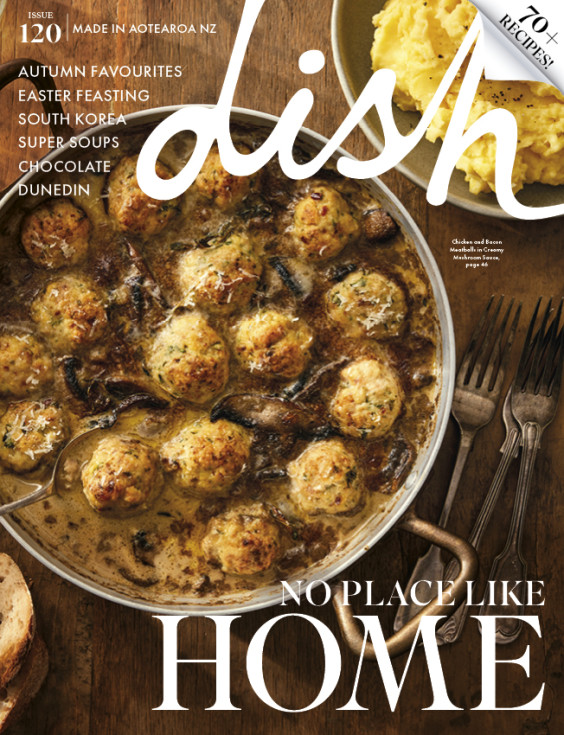Serves: 4–6
INGREDIENTS
1 free-range, corn-fed chicken
3 sprigs French tarragon
sea salt and freshly ground pepper
Tarragon butter
50 grams butter at room temperature
1 tablespoon wholegrain Dijon mustard
2 tablespoons chopped fresh French tarragon
finely grated zest 1 lemon
2 cloves garlic, crushed
To cook
8 baby leeks, washed and trimmed
8 spring onions
4 red onions, peeled and halved through the root
8 whole shallots, peeled with root intact
2 small whole heads of garlic, top third cut off
½ cup white wine
1 cup good chicken stock
¼ cup crème fraîche
METHOD
Preheat the oven to 200˚C.
Butter: Combine all the ingredients in a bowl and season.
Chicken: Rinse the chicken inside and out with cold water and dry with kitchen towels. Halve the zested lemon and place it in the cavity with 1 tablespoon of the tarragon butter and the extra sprigs of tarragon.
Gently separate the skin from the breast by pushing two fingers in between the skin and the meat. Push half the tarragon butter underneath the skin on both sides of the breast. Tuck the wings underneath, tie the legs together with kitchen string around the parson’s nose and truss around the bird to secure the wings against the breast. Rub the remaining butter over the chicken and season well.
To cook: Put the chicken, vegetables, wine and stock in a large roasting dish and season. Roast for 70 minutes, until the chicken is fully cooked through, basting the chicken and turning the vegetables occasionally. The juices from the chicken should run clear when a skewer is inserted in the thickest part of the thigh.
If the vegetables are cooked before the chicken, remove them to a platter and cover to keep warm. Add more stock or water to the roasting dish if needed so it doesn’t dry out.
To serve: Transfer the vegetables and chicken to a serving platter, cover loosely and keep warm. Place the roasting dish over a medium heat, add the crème fraiche and simmer until syrupy. Season, pour into a small jug and serve separately.
To baste: to spoon or pour cooking juices, fat or other liquid such as a marinade over foods, usually meat, during cooking or grilling.
Pantry Note:
Tarragon: best known as one of the most important herbs in French cooking. It has a slightly anise flavour, used to enhance many classic dishes, including Béarnaise sauce. French tarragon has a much better flavour than Russian tarragon.
Keep up to date with
dish weekly recipes,
food news, and events.
latest issue:
Issue #120
As the days become shorter, and the nights cooler, the latest issue is perfectly timed to deliver delicious autumn dishes. From recipes using fresh seasonal produce such as feijoas and apples, to spectacular soothing soups and super-quick after-work meals in our Food Fast section, we’ve got you covered. With Easter on the horizon, we feature recipes that will see you through breakfast, lunch and dinner over a leisurely weekend holiday, and whip up chocolatey baking treats sure to please. We round up delicious dinners for two and showcase a hot new Korean cookbook before heading south to Dunedin to check out all that’s new in food and dining.The latest issue of dish is on sale NOW at all good bookstores and supermarkets – don’t miss it!

